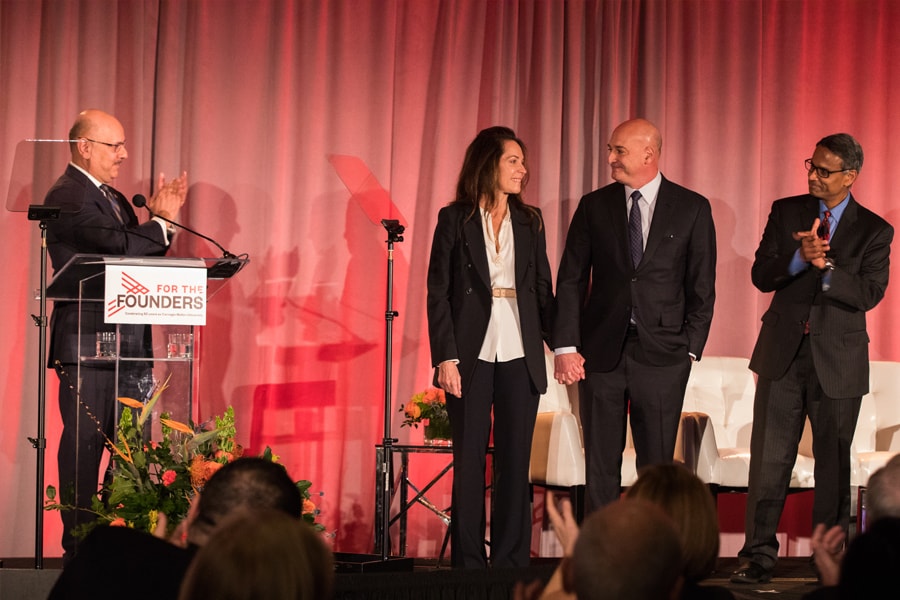CMU and South By Southwest
By Laura Kelly
Now, more than ever, the world needs Carnegie Mellon University.
Confronting monumental issues across the globe, Carnegie Mellon's diverse group of researchers, scholars and artists operate at the intersection of technology and humanity, undertaking ambitious projects to solve the world's most pressing problems. We do this by collaborating across disciplines, traversing traditional boundaries and implementing real, practical change in substantive ways that benefit all of humankind.
Recognizing the unprecedented complexities and potential of the modern age, CMU is ideally positioned to tap the breadth of our academic expertise, explore the promise of the future and apply ourselves to consider the vast implications of innovation on society. Our next chapters of discovery will improve the quality and quantity of food production, reduce pollution, empower the disabled and devise prudent policies that maximize technology's benefits while minimizing its impediments.
It is work that matters.
SXSW — in its thought-provoking exploration of cutting-edge trends in technology, the arts and innovation — sets the stage to examine such important work. And the topics examined here today are the same areas where Carnegie Mellon thrives. We encourage you to explore some of the many ways CMU is contributing to these discussions below.
The Omnipresent AI
In 20 years there will be 9.6 billion people to feed, and not enough food. CMU's FarmView is tackling this problem through a team effort of researchers and robots that will increase crop yields with fewer resources by controlling and measuring the environment then analyzing the data, to provide solutions to farmers across the globe.
Related CMU Content:
Frontline Cities
Seventy percent of the world's population will be urban by 2050. CMU's Smart Cities is transforming the way people will live in metro regions with its research, development and deployment approach to urban infrastructures to improve air quality, traffic congestion, economic efficiency and the safety of our citizens.
Ethical Design
Empowerment, Inclusion and Activism in Business and the Arts
CMU Alumna Courtney Williamson is the co-founder and CEO of AbiliLife, which creates devices to improve the quality of life for people with movement disorders.
Hacking Our Health and Our Bodies
Startups in the Age of the Big Four Tech Giants
The Swartz Center for Entrepreneurship at Carnegie Mellon University is a system of programs and activities that offers a unique path of entrepreneurship education, engagement, collaboration and opportunity — for a truly transformative learning experience.
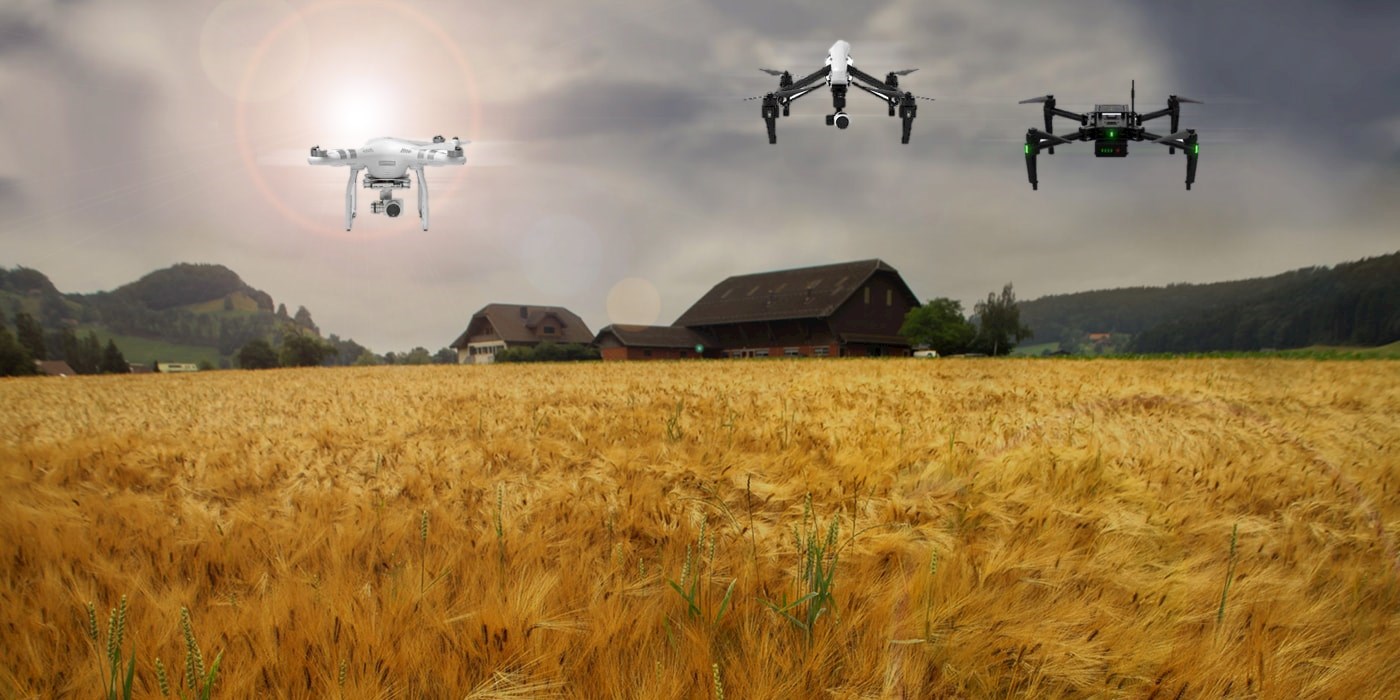 Skycision, founded by CMU alumnus Brendan Carroll, teams up drones with farmers to maximize crop yields.
Skycision, founded by CMU alumnus Brendan Carroll, teams up drones with farmers to maximize crop yields.
Related Stories:
Convergence is Everywhere
At CMU, behavioral economists tackle complicated problems important to society by using a distinct fusion of economics and psychology.
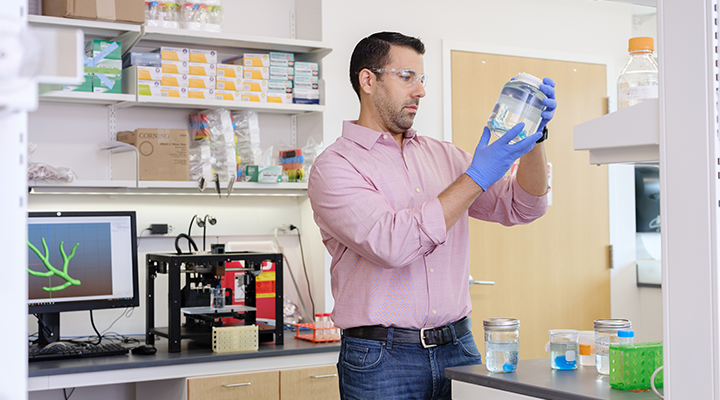
Professor Adam Feinberg Uses Engineering Principles To Regenerate Human Tissue
The VR Market Matures
Project Voyage explores collaborative virtual reality in a classroom setting. The team used Mobile VR as its platform, specifically, the Google Daydream and Pixel.
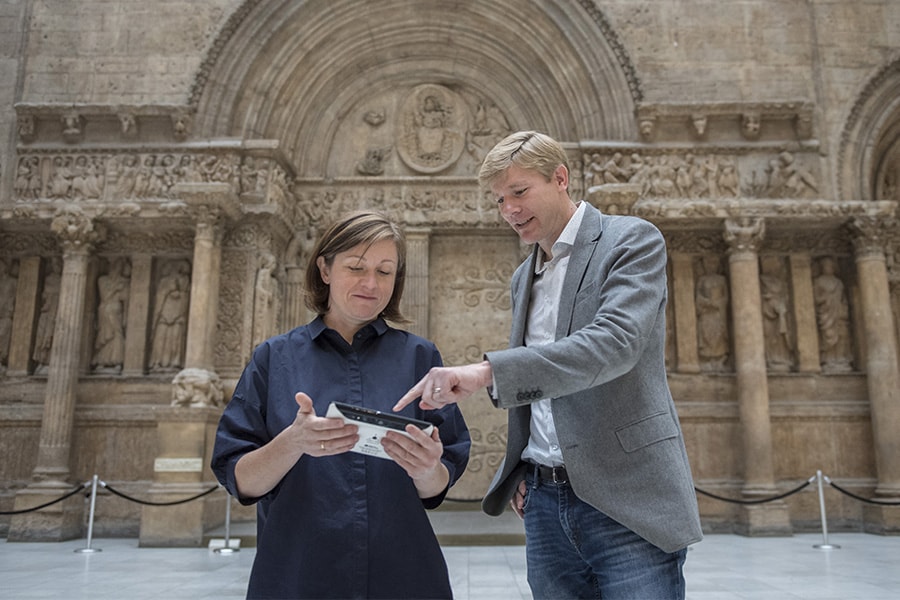
Professors Francesca Torello and Joshua Bard researched the casts and created the framework and the content for a museum app.
Related CMU stories:
New Media Companies Breaking into Entertainment
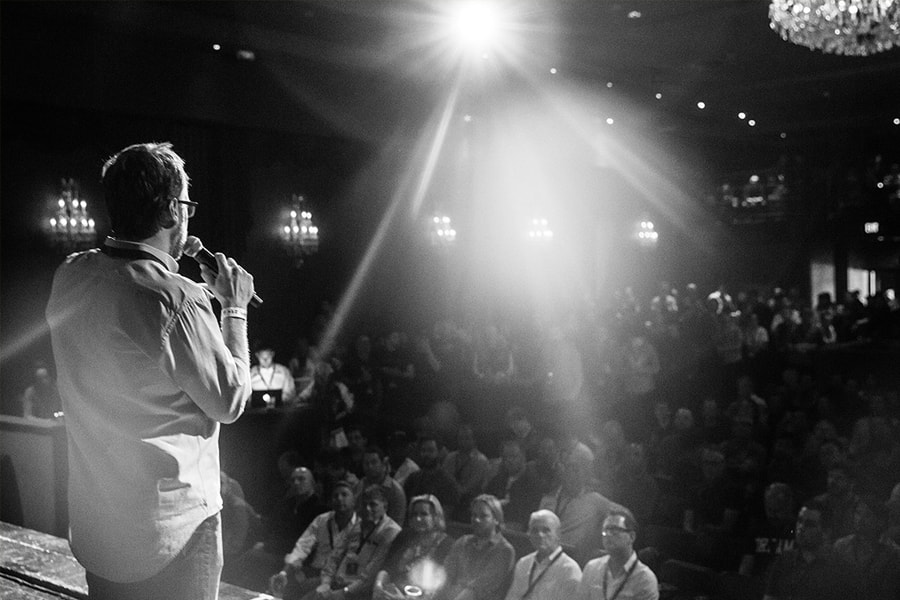 Managing Director of Music and CMU alumnus Bob Moczydlowsky speaks at Techstars Music Demo Day at the El Rey Threatre in Los Angeles in 2017.
Managing Director of Music and CMU alumnus Bob Moczydlowsky speaks at Techstars Music Demo Day at the El Rey Threatre in Los Angeles in 2017.
Related Stories:
The Blockchain Rises
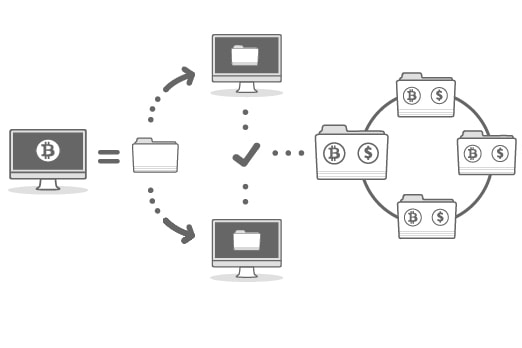
Blockchains are transaction databases spread across computers that will verify and bundle.
Students at CMU's Heinz College of Information Systems and Public Policy have partnered with international corporations to learn more about blockchains and how they can aid businesses.
